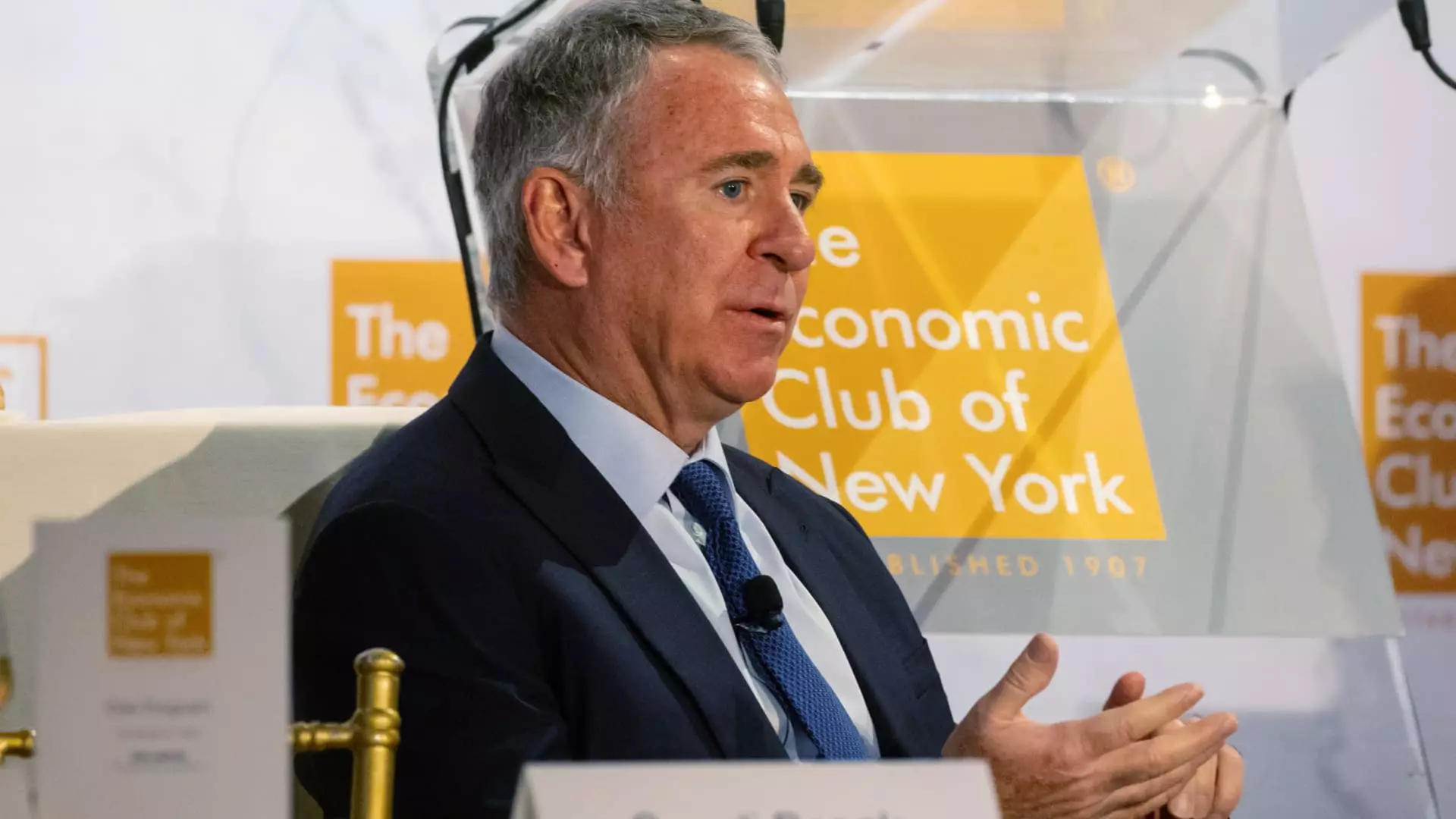As discussions surrounding economic policy heat up in the wake of the potential Trump administration, concerns surrounding the implementation of steep tariffs have emerged. Notably expressing his apprehensions, Ken Griffin, CEO of Citadel, pointed out that these tariffs could lead the United States toward crony capitalism. His insights, shared during a recent talk at the Economic Club of New York, underscore the complexities of protectionism and its far-reaching implications on the economy.
Griffin elaborated on how tariffs, though seemingly beneficial for domestic enterprises in the short term, could set a precarious precedent for American businesses. In an environment where competition is stifled through governmental intervention, businesses may become complacent. This complacency could diminish their drive to innovate or improve their services, which could ultimately disadvantage American consumers and the broader economy.
Griffin’s argument rests on the premise that the “sugar rush” associated with removing competition may lead to a false sense of security for domestic companies. The initial spike in profits from reduced competition can lead firms to believe that they do not have to work as hard to meet market demands. Over time, this complacency can erode their ability to compete effectively on a global stage. When companies lose their competitive edge, it affects not only their profitability but also the overall welfare of American consumers who rely on diverse and high-quality products.
The Citadel CEO further emphasizes that this sense of entitlement among domestic businesses can create a vicious cycle where companies lean heavily on government protection instead of fostering innovation. This dynamic can spark a chain reaction in Washington, with market players lobbying for increasing tariffs to shield themselves from foreign competitors rather than focusing on improving their own value propositions.
Griffin’s cautionary perspective brings to light the broader economic consequences of adopting protectionist policies like universal tariffs. A blanket 20% tariff on imports, with an astronomical 60% on imports from China, poses a significant threat to production costs across multiple sectors. Higher tariffs could amplify consumer prices, leaving American households grappling with increased living costs just as the nation emerges from the economic repercussions of the pandemic.
More critically, Griffin warns that rampant lobbying for higher tariffs could cater to special interest groups rather than the needs of the average taxpayer. This scenario might culminate in an unregulated environment where government and commercial interests conflate, stifacing true competition and undermining market efficiency.
Amid these turbulent economic discussions, Griffin remains focused on the future of Citadel. He noted that the firm isn’t contemplating taking Citadel Securities public anytime soon. Emphasizing a commitment to long-term growth and innovation, he argues that the benefits of remaining private during a phase of rapid expansion outweigh the allure of public investment.
Ultimately, Griffin’s insights highlight the critical intersections between government policy, corporate behavior, and consumer welfare. As the political landscape evolves, it is imperative for stakeholders to remain vigilant about the potential pitfalls of protectionism while fostering an economic environment that prioritizes competitiveness and innovation. In a rapidly shifting global market, the challenge lies not merely in protecting domestic interests but in building a sustainable economy that benefits all parties involved.

